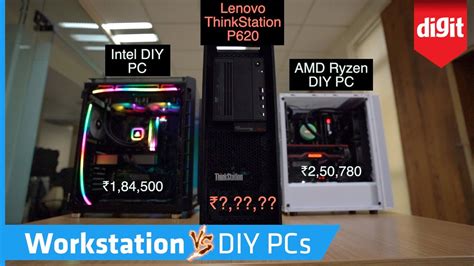Raspberry Pi has emerged as a key player in the Internet of Things (IoT) revolution, offering affordable, flexible, and powerful solutions for a wide range of applications. As we look toward 2024, the latest Raspberry Pi models continue to push boundaries, enabling innovative projects in areas such as smart home automation, industrial IoT, healthcare, and education. In this article, we explore the top IoT innovations and applications powered by Raspberry Pi, from DIY projects to advanced industry solutions. Discover how this versatile platform is shaping the future of IoT and what trends to expect in the coming year.
Embark on a detailed exploration of this topic with alijyun.com
1. Overview of Raspberry Pi and IoT
Since its inception, the Raspberry Pi, a compact and potent single-board computer, has transformed the landscape of computing. Initially conceived for educational endeavors, it has gained widespread adoption in a diverse range of applications, notably within the Internet of Things (IoT) domain. Its compelling blend of affordability, diminutive footprint, and adaptability has made it a favored tool among developers, hobbyists, and businesses alike.
Within the Internet of Things (IoT) ecosystem, the Raspberry Pi stands as a pivotal hub for interconnecting diverse sensors, devices, and systems. Its remarkable capability to operate on minimal power while accommodating a broad spectrum of programming languages and hardware interfaces positions it as an optimal choice for developing connected devices that facilitate data collection and exchange. The Raspberry Pi’s versatility extends from monitoring home security systems to overseeing industrial machinery, seamlessly infusing everyday objects with intelligent capabilities.
The rise of smart homes, connected cities, and autonomous systems has firmly established Raspberry Pi as a key player in the IoT landscape. By empowering countless innovations, Raspberry Pi has become a driving force in this evolving field. Its flexibility and continually expanding capabilities make it an indispensable tool for creating smarter, more efficient, and scalable IoT solutions. As the IoT continues to grow, Raspberry Pi’s impact on development is poised to become even more significant in the years ahead.

2. Latest Raspberry Pi Models and Features
In 2024, the Raspberry Pi continues to advance with newer models that offer enhanced performance and expanded capabilities, particularly for Internet of Things (IoT) applications. The Raspberry Pi 4 Model B remains a popular choice, equipped with up to 8GB of RAM, a powerful quad-core ARM Cortex-A72 CPU, and dual 4K HDMI outputs, making it ideal for resource-intensive IoT projects. It boasts improved connectivity options, including Gigabit Ethernet, Bluetooth 5.0, and dual-band Wi-Fi, enabling faster and more reliable data transmission.
The Raspberry Pi Pico W stands out as a notable release, building upon the popular and compact Pico platform by incorporating wireless connectivity. This addition makes it ideal for low-power, remote IoT applications where energy efficiency is paramount.
These models empower developers to tackle a wide range of tasks, from basic automation to intricate machine learning applications, all at the edge. Raspberry Pi’s modular design and compatibility with a vast array of third-party accessories further amplify its appeal. These latest models facilitate the creation of scalable and future-proof IoT systems, solidifying Raspberry Pi’s standing as a versatile and powerful force in the ever-expanding landscape of the Internet of Things.

3. Smart Home Automation Projects
Raspberry Pi is a key player in turning homes into intelligent spaces, empowering users to automate everyday tasks. Its cost-effectiveness and flexibility make it the preferred choice for building DIY smart home automation projects. Raspberry Pi enables homeowners to develop personalized solutions that effortlessly connect devices like lighting systems, security cameras, door locks, thermostats, and even voice assistants.
Home security is one popular application for Raspberry Pi. It can be used to create motion detection systems, live video streaming, and automated alerts. When combined with IoT sensors, homeowners can monitor their property remotely and receive real-time notifications of any suspicious activity.
Another common project involves lighting control. With a Raspberry Pi, you can manage smart bulbs and switches, automating lighting schedules or adjusting brightness based on environmental factors. Integration with voice control platforms like Alexa or Google Assistant adds further convenience, enabling hands-free control of home devices.
Raspberry Pi can also manage smart thermostats, allowing for precise temperature control and reduced energy consumption. Through its ability to integrate various systems into a unified network, Raspberry Pi facilitates the creation of fully automated homes, enhancing comfort, security, and energy efficiency. As the Internet of Things (IoT) progresses, the role of Raspberry Pi in smart home automation is expected to expand further.

4. Industrial IoT Applications with Raspberry Pi
Raspberry Pi has become increasingly popular in industrial IoT (IIoT) applications. Its affordability, flexibility, and powerful performance make it a strong choice for this sector. Industries such as manufacturing, agriculture, and logistics are using Raspberry Pi to monitor and control processes, leading to improved efficiency and reduced costs.
In industrial environments, Raspberry Pi is frequently employed for predictive maintenance. By connecting sensors to machinery, it gathers data on vibration, temperature, and other crucial factors. This real-time monitoring allows businesses to anticipate equipment failures, facilitating timely maintenance and minimizing costly downtime.
In agriculture, Raspberry Pi-based IoT systems play a vital role in automating and optimizing operations. These systems are employed to control irrigation systems, monitor soil moisture levels, and even regulate lighting in greenhouses. By collecting and analyzing data, farmers gain valuable insights that enable data-driven decision-making. This leads to increased crop yields and more efficient resource utilization.
Raspberry Pi finds application in smart logistics, enabling the tracking of goods via sensors and GPS. This ensures prompt deliveries and streamlined inventory management. Its affordability and open-source foundation make it a favored choice for IIoT advancements, offering businesses a flexible and scalable platform for diverse industrial applications.
5. Healthcare Innovations Using Raspberry Pi
Raspberry Pi is revolutionizing healthcare by empowering innovative Internet of Things (IoT) solutions. These solutions enhance patient care and advance medical research. The affordability and customizable nature of Raspberry Pi make it an ideal tool for creating cost-effective healthcare technologies. These technologies have the potential to be implemented in both developed and underserved areas, expanding access to quality healthcare globally.
Remote patient monitoring is one notable application. Raspberry Pi can collect real-time data from IoT-enabled medical devices, such as heart rate monitors, blood pressure cuffs, and glucose meters. This data is then transmitted to healthcare providers, enabling them to monitor patients’ vital signs and identify potential health issues early. This eliminates the need for frequent in-person visits.
Raspberry Pi contributes significantly to advancements in medical imaging and diagnostics. Its applications include powering portable ultrasound machines, enabling the development of AI-powered diagnostic tools, and facilitating research endeavors. In the realm of research, Raspberry Pi proves instrumental in automating laboratory equipment, processing biological data, and executing simulations, all at a fraction of the cost associated with traditional equipment.
By bridging accessibility and affordability gaps, Raspberry Pi fuels innovation in healthcare. This enables the creation of smarter, more efficient systems that enhance patient care and improve medical outcomes.
6. Educational and DIY IoT Projects
The Raspberry Pi has emerged as a popular choice in education, enabling students, teachers, and enthusiasts to delve into the realm of the Internet of Things (IoT) through practical experience. Its accessibility and user-friendly nature make it an excellent resource for imparting knowledge in coding, electronics, and IoT principles, both within traditional classrooms and in home learning environments.
A prominent application of Raspberry Pi in education lies in the construction of DIY IoT projects. Students can develop basic IoT devices, ranging from weather stations and home automation systems to robotic arms, to gain insights into the interplay of sensors, actuators, and programming. These projects foster creativity and problem-solving abilities, equipping learners with the skills to address real-world issues.
Educational platforms offer comprehensive step-by-step guides for utilizing Raspberry Pi in Internet of Things (IoT) projects, making it accessible for even novice learners. These projects empower students with hands-on experience in IoT technology, laying a strong foundation for future careers in tech and engineering fields. Raspberry Pi’s adaptability and user-friendliness have cemented its position as a fundamental tool in educational IoT projects and Do-It-Yourself (DIY) innovations.
7. Future Trends and Predictions for Raspberry Pi IoT in 2024
Looking ahead to 2024, several trends and predictions point to a significant role for Raspberry Pi in the Internet of Things (IoT). One key trend is the increasing integration of artificial intelligence (AI) and machine learning into Raspberry Pi applications. This integration will enable more sophisticated data processing and analytics at the edge, allowing devices to make real-time decisions based on the data they collect.
The growing need for intelligent urban management is fueling the adoption of Raspberry Pi in smart cities. Its ability to drive diverse IoT applications, ranging from smart traffic systems to waste management solutions and environmental monitoring tools, is playing a crucial role in creating more sustainable and liveable urban environments.
Furthermore, the expanding reach of 5G technology will empower Raspberry Pi devices with enhanced connectivity, characterized by greater speed and reliability. This advancement will facilitate the integration of a wider range of connected devices and applications. The open-source community associated with Raspberry Pi is poised for growth, nurturing collaboration and innovation. This synergy will drive the creation of novel tools and platforms.
The future of Raspberry Pi in the Internet of Things (IoT) is filled with promise, offering boundless opportunities for creativity and advancement across various sectors, including education, industry, and daily life.
In conclusion, Raspberry Pi stands at the forefront of IoT innovation, empowering diverse applications from smart homes to healthcare and education. As technology continues to evolve, Raspberry Pi’s affordability, flexibility, and growing capabilities will drive further advancements, making it an essential tool for developers and enthusiasts shaping the future of the Internet of Things.
alijyun.com

